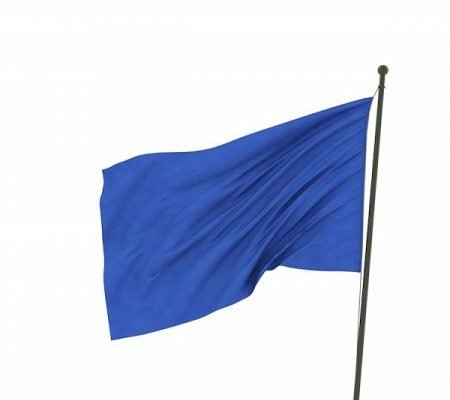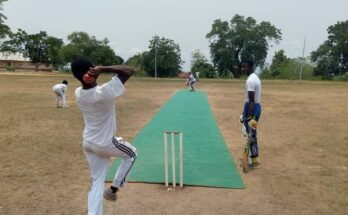By Professor Okwudiba Albert Nnoli.
As I prepared to go “where we come from” for the first time, I was filled with excitement, and trepidation. It was to attend an interview for admission into class one of Government Secondary School, Owerri. I was excited because I had the prospect of attending one of the prestigious secondary schools in the country. Living in Enugu at the time, I was aware of the majestic buildings of Holy Rosary College (HRC) and the College of Immaculate Conception (CIC) both in Enugu. Hailing from Oraifite, a few kilometers from Onitsha, I was equally aware of the grandeur of the brick buildings of the Dennis Memorial Grammar School (DMGS), the imposing edifices of Christ the King College (CKC) and the Queen of Rosary College (QRC) all in Onitsha. Since none of these schools was as famous, I simply imagined the fabulous buildings that would adorn the school compound of the Government Secondary School, Owerri. I would be one of the select few that would walk the corridors of these “palatial” buildings, sleep in them and study within their walls. I was not similarly excited by the prospect of being associated with the reported academic excellence of Government Colleges. This was probably because I was corky, even arrogant, in my self-confidence in academic matters at that time.
However, it was not all excitement. There was anxiety also. Would I pass the interview? The rumour in Catholic schools at the time was that pupils from these schools were discriminated against in admission to Government colleges. Mine was a Catholic school, St. Brigids, Enugu. There was the added belief that Government College students were very bright and fiercely competitive academically. How would I make out, my self-confidence notwithstanding? Anxiety was not limited to academic matters. There was the anxiety of getting to “where we come from” from Enugu. The prospects of struggling and haggling with motor park touts, notoriously known at the time as “Ocho-passenger” at both the Enugu-Onitsha and Onitsha-Owerri motor parks respectively were quite daunting and frightening. These people would almost tear you apart from your luggage, or even attempt to dismember you as they struggled to shepherd you into one mammy wagon or another. The knowledge that I would not be escorted to the motor park at Enugu or Onitsha, did not help my nerves either.
On the fateful departure day, excitement and anxiety crossed each other as I made it, predictably alone, to Enugu motor park and faced the harrowing experience of dealing with “Ocho-passengers.” I survived but only barely. With sweat pouring down my face, I succeeded in installing myself in the “second class” compartment of the Enugu-Onitsha mammy wagon commonly called “Gwongworo”. The second class was a veritable death trap. I guess that the only comfort was that passengers there faced the road while those in the “third class” or economy class backed the road. Those in “first class” sat proudly with the driver. It is needless to say that I could not afford the fare for the first class. At Onitsha it was more of the same. There was the added experience of transporting both self and luggage from one motor part (Enugu Onitsha) to another (Onitsha-Owerri) and running the same gauntlet of “Ocho-passengers”.
It was at Owerri that I experienced a brand new situation. The most notable aspect of it was the commercial bicycle ride. It seemed like an endless tripartite struggle between the bicycle operator, the sand that occupied most of the road, and me for the possession of my body and luggage. It soon became clear that no clear-cut victor would emerge despite all my effort to use my feet and legs to control the situation in my favour.
The sand was particularly unrelenting in its mischief and manipulation of man, machine and luggage. What a struggle! It sharpened the body and the mind. I was ready for the interview. Sooner than later I realized that this battle would be repeated term after term and year after year until I left the school after my Higher School. Those days Owerri refused to change.
The greatest shock of my journey to “where we come from” came when we arrived at the school. What! I could not believe that the bicycle operator was coming to a permanent stop at the place where he had stopped. It was an anticlimax. This could not be the secondary school of my dream. Where were the multi-storey buildings? There was none in sight. Was this how all the Government Colleges looked? In that case they were not for me. Why were people in my primary school concerned about the alleged discrimination against Catholics? The Catholics had their CKC’s and CICs, and there was no comparison. There and then I made up my mind to head eventually to CKC or CIC. They also produced “grade one” students. Little did I know that fate would play a “cruel” trick on me.
I passed the interview with entrance scholarship. With the scholarship secured, my parents would not hear of CKC or CIC. Of course, they had not seen what I had seen, not that it would have made any difference to them especially when I did not have to pay school fees or buy books and school uniforms for the duration of my secondary school life. Parents had to be parents. I did not blame them, Instead, I cursed my instinct not to fail an examination, written or oral. Now I was stuck, compelled to make the best of a “bad” situation. What would I do?
My mother’s wisdom “if you do not like a thing or situation try and change it for the better” could not apply in this case. There was no way I could expect to build the relevant structures of my dream in the school. I had to embark on another dream, an excellent secondary school career, but without palatial buildings or sumptuous amenities. What to do!.
The flag that does not flutter
As I resigned myself to life at Government Secondary School, Owerri, it began to dawn on me, albeit, subtly and gradually over the years that the school had a flag which it had kept “flying” for some time before my entrance. And I had this uncanny feeling that the flag would continue to “fly” no matter what I did or did not during my tenure. Strangely, it was not the regular flag, made of cloth; it was not of the nature of the Union Jack used during colonial times, the green-white-green flag of postcolonial Nigeria or the flag of the rising sun used in Biafria. Instead, it was a flag of character. But by the time I left “where we come from “I had grown to appreciate the flag, and had committed myself to keeping it flying – even to do or die for the flag, strange for one whose fascination had been limited to school buildings.
It was composed of an intricately interwoven set of human values whose texture was designed to impress and whose impact was meant to endure. Its component values were humility, respect for elders, civility, punctuality, respect for the truth and what is right, sportsmanship, academic excellence, neatness, respect for work, hard work, good humour, synergy between academic and physical development, and leadership.
Amazing! What a work-of-art! What a product of creativity! Who conceived such a flag? It is easy to say “the founding fathers of the school”. But this begs the question. What of other schools without such a flag? Do they not have founding fathers? The truth is that the question defies research. We must fall back on the role of chance. It must have been the fortuitous product of the collective experience of the community of staff and students of the school, as they grappled with the challenges of producing the best environment for learning and character building. The concept must have evolved with time.
Therefore, I give credit and commend the pioneering staff and students who set the ball rolling. Let us remember staff such as Eyo Eyo, Nkunne, Jumbo Herbert-Dick, Bennett Arnold Okafor, Nathan Ejiogu, Leopold Gam and Charles William Low. They hoisted the flag with their 1935 students among who were: Ike F. Nnawuchi G. Anyasike D, Amaechi E, Nzerem B, Ekewuba H, Philips E. and Ezem S. Once these staff and students hoisted the flag, subsequent generations of staff and students faced the challenge of either fulfilling the mission of the flag or betraying it. In spite of the vicissitudes of history no generation has betrayed it, the euphoria of national independence in 1960 and the trauma of the civil war (1967 -1970) notwithstanding. Betrayal was out of the question because the flag is infectious in its impact on students. It divests you of your previous character and moulds a new one for you. In the process you kick and struggle, whine and whimper, rebel and revolt but in the end you not only succumb but also even go on to show love and dedication to it, and become its ardent defender and promoter.
It could not be otherwise because the school has developed into one single-minded agency for socialization in the flag. And the process of socialization is quite often ruthless and uncompromising.
These days one runs into principals (there are two now) and other staff lurking in corners and spaces, cane in hand ready to deal telling blows on all those seeking to betray the flag. During my own time caning was reserved for those who had accumulated detention hours of five or more, whose names were then entered into the feared black book. No one really ever saw this book. But it put the fear of God in all and sundry. How the times have changed! However, as a philosopher puts it, “the more things change the more they remain the same.” The flag remains the same. It is the mechanism for socialization into its values that has changed with time in accordance with changes in the challenges to the flag.
I recall one of the lessons I received on humility, apart from that provided by the buildings in the school. In an essay written in an English Language class conducted by the principal, Mr. M.C. English, I had tried to show off with very high-falutin words, phrases and sentences. You know the type about “descending a precipitous declivity”. When the teacher had finished marking the essays he brought them to class. He then asked me to stand up and proceeded to read my own essay very loudly. As he read it, everyone, including me, burst out laughing and kept on laughing until the reading ended. It was quite hilarious. At the end of it all, Mr. English remarked, “That is the only effect such an attempt can produce – laugher.” He announced my mark there and then. It was a zero out of ten. I wonder how students of today learn lessons about humility.
“Please may I talk to you, please”? That was how we learnt respect for elders. The doubling of “please” was baffling at the time. But without it you could not talk to your senior. Worse still, you might earn some punishment. In order to drive home the need for punctuality, one of the prefects of our generation punished a group of students who came back late from the Nworie River where we bathed and fetched water. The group was made to run round the field several times while carrying the buckets of water that they had fetched on their heads. It was an interesting sight to behold. A powerful lesson to learn.
Similarly, socialization into the value of academic excellence was uncompromising. Take the example of Mr. Ben Chukwudebe when he taught Mathematics to our class. On occasions he would enter the geometry class and issue instructions as follows: “Bring out your Durrell. Open to page (so and so)… answer questions one to twenty. You have twenty minutes. You must start’. Precisely twenty minutes later he would come back with: “Stop. Move your papers two places to the right”. The student two places to your right would mark your paper. He would then proceed to write and explain the answers to the questions on the blackboard. If for example, at the end of a geometrical proof the student failed to put down Q.E.D he would thunder as follows: “Does he have Q.E.D? Does he have Q.E.D?” A student would answer “No sir, but he got everything else.” “Give him zero. Give him zero”, came the instruction. At the same time, the inclusion of anything wrong or unnecessary while answering the question would elicit the instruction: “Give him minus one”. In the end some of us ended up with a total score of minus 1 to minus 10. It was like passing through the crucible.

Prof Okwudiba Nnoli is an Emeritus Professor of Political Science. He taught for many years at University of Nigeria, Nsukka. He is of the ’53 set.
![]()






